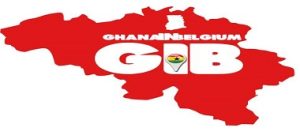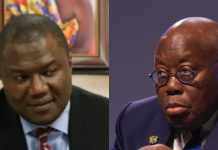 Research carried out by the Institute of Economic Affairs, IEA, has revealed that political parties in Ghana on average spend about 800, 000 cedis in election years.
Research carried out by the Institute of Economic Affairs, IEA, has revealed that political parties in Ghana on average spend about 800, 000 cedis in election years.
The Institute added however, that despite the important, constitutionally-mandated roles played by the political parties in the country and the high cost they incur in performing these roles, they are left to fend for themselves without enough support from the state.
A Senior Research Fellow at the IEA in charge of governance, Dr. Ransford Gyampo, who addressed the media on Thursday, described political parties in the country as the “most neglected state institutions” “The unfortunate thing for us in Ghana is that in spite of the numerous roles that they supposed to perform to give full meaning to multi-party democracy, political parties are the most neglected of all state institutions.
They are made to operate purely as private organisations with virtually no state support in their establishment, maintenance and well-being.
Our 1992 constitution imposes certain duties on them. Article 55, section 3 mandates political parties to shape the political will of the people, to disseminate information on socio-economic and political ideas and to sponsor candidates for any elections to any public office other than district assemblies and lower local government units,” Dr. Ransford Gyampo said.
“To be able to perform this function, they require some funding. It costs political parties a lot to exist and perform this constitutionally-imposed mandate. On the average, my research shows that it costs political parties up to 100, 000 cedis to run and maintain themselves in all districts of the country just for one month during off peak election seasons; in between elections.”
Dr. Gyampo also revealed that political parties in the country spend just under 10, 000 cedis on utility and rent expenses, while as much as 8, 000 cedis is spent on average on the salaries of their staff.
“During electioneering campaigns, it could cost as much as 800, 000 cedis a month for political parties to run their activities. On the average it costs as much as 2, 500 cedis for parties to rent and maintain office spaces across the country. Again it costs 8,000 cedis every month to maintain and pay the salaries of just about 3 staff. They also spend on average 7, 000 cedis every month just on utilities to keep their offices running. And then in order to get people to vote for them, they have to attend social gatherings like funerals, weddings, naming ceremonies and when they go, they are expected to make donations just to be able to look attractive to the people. It could cost up to 10, 000 cedis a month.”
According to Dr. Gyampo, it was important for political parties that ultimately fail in their election bids to that their continued existence was secure in order to prevent them from desperately trying to claim power.
“The unhealthy and do or die affair nature of electoral competition would, in my view, minimise drastically if would-be losers know that they would still survive in opposition after defeat. If political parties know that they would be able to run their parties and match the ruling party in terms of campaign, the hostility, acrimony and desire to win elections to win at all cost that threatens our peace will also reduce. This is one of the defining features of winner-takes-all politics that the proposal for public funding of political parties is seeking to address.”
google.com, pub-6336011652228911, DIRECT, f08c47fec0942fa0








